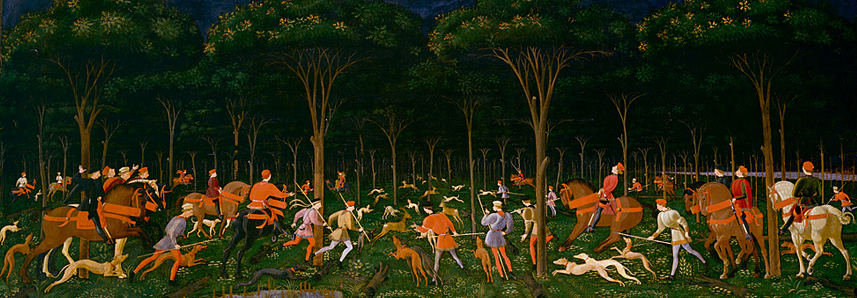
Image © Ashmolean Museum, University of Oxford
It is a truth universally acknowledged by the writing community that an author struggling with problems in the middle of a novel can do one of the following things:
Take a walk for at least five hours and sleep for forty-eight.
Useless.
Go on an endless rambling moanathon, thereby losing every friend they might have acquired with difficulty over the past twenty-five years.
Worse than useless.
Drink three bottles of whisky and wake up with an enormous hangover next morning when their bank statement collapses on their doormat.
Very dangerous.
Sit in the Bodleian for a week with their nose in The Times 1911 writing hundreds of notes they will never read again.
Utterly pointless.
Spring clean a cupboard. Or two. Or even a whole room. Emerge grubby but triumphant, and tell all their neighbours they should do the same.
Their problems in the middle of a novel have somehow miraculously sorted themselves out.
After sixty years in publishing and twenty as a full-time writer, I can assure all my millions of fans that buying bottles of cleaning fluid, tins of furniture polish, rubber gloves and soft white cleaning cloths is the only tried and tested way of becoming a global phenomenon.
Take this morning as an example. I got up at 5.00 a.m. to wash the hearth.
Where are all your servants, I hear you ask. Where is the kitchen maid, the cook and bottle washer, the boot and shoe cleaner, the under housekeeper and the head butler? Couldn’t one of them take such drudgery off your lily-white hands?
They could if they existed. The truth is, they don’t, I still do – and I actually love cleaning.
For those of you who have never felt a broom fall apart at the seams, filled a bucket with hot water and Flash of Life, seen the bubbles foam in the garden drain because you’ve spent an hour washing the dishes, smelled beeswax polish as you open the front door, let me spell it out.
Deep cleaning is good for your soul. It enhances your creative spirit. Your heart will sing.
I’m not allowed to use a hoover. I put clothes in the washing machine or give them to a professional laundry. The mere sight of an iron makes me go pale with hate.
But cleaning a shelf until it sparkles? Washing the hearth until its original stone shines back at you? Turning out the contents of an untidy drawer and putting them back together again after they’ve been pruned and sorted?
I’m your woman every time.
I can declutter an entire house in three days flat. I’m the best chucker-out of rubbish my small town has ever seen. Pile ’em high, I do, those glaring plastic bags, in my annual battle of the superfluous wotsits that were gunging up my cottage.
Knowing where to find things in the bedroom is the equivalent of working out how that pesky Chapter 26 is going to end.
Not with a bang or a whimper. Merely with finding the truth. Clean and shining, it has been staring me in the face all day. I simply couldn’t see it for dust…
Of course, I’m talking simple remedies here. A brilliant editor can transform dull work with the red pen of spring cleaning. That art is much more complicated. The best writers are always those who can write and then ruthlessly edit their own work as if it belongs to someone else.
Removing years of grime from an ancient cottage roof needs men who can climb with skill and care, use the correct machine and know what to do with the dirt. They are insured for millions.
Cleaning the inside of engines needs people who understand how the things are meant to work.
Cleaning the world of a virus needs inventive minds, total dedication and scientific progress at its most astounding best.
And cleaning the surface of a masterpiece that has been hidden for centuries beneath blankets of worldly dirt? That really is an art to be celebrated.
The Ashmolean in Oxford has one of the most beautiful paintings in the world. Paolo Uccello painted it five hundred and fifty years ago, in 1470, in tempera and oil, with traces of gold, on panel. After it was restored to its former glory, I wrote this poem as my hymn of praise:
Paolo Uccello’s Hunt in the Forest
After Restoration
Every mouth springs open
Every leg runs lean
Dog leads master, horse leaps rider
Dawns the forest. Rank outsider
Runs blue river’s sacred water
Every mouth stays open, every breath rings clean.
Every voice comes calling
Every eye stares wide
Horse snorts neighing, dog snaps baying
Stag hangs slaying. Centre staging
Crescent moon glints sacred water
Every voice cries calling, galloping the tide.
Mark the sharpened arrow
Listen to the scream
Oak plantation’s narrow
Pathway points its gleam.
Hound and stag and master
Lock in ruthless coil
See! The battle’s over – take away the spoil.
Every rosy doublet
Every jewelled glove
Every polished stirrup
Watch the act of love:
Every mouth is open
Every leg is lean
Forest consummation’s
Hunting scene.

